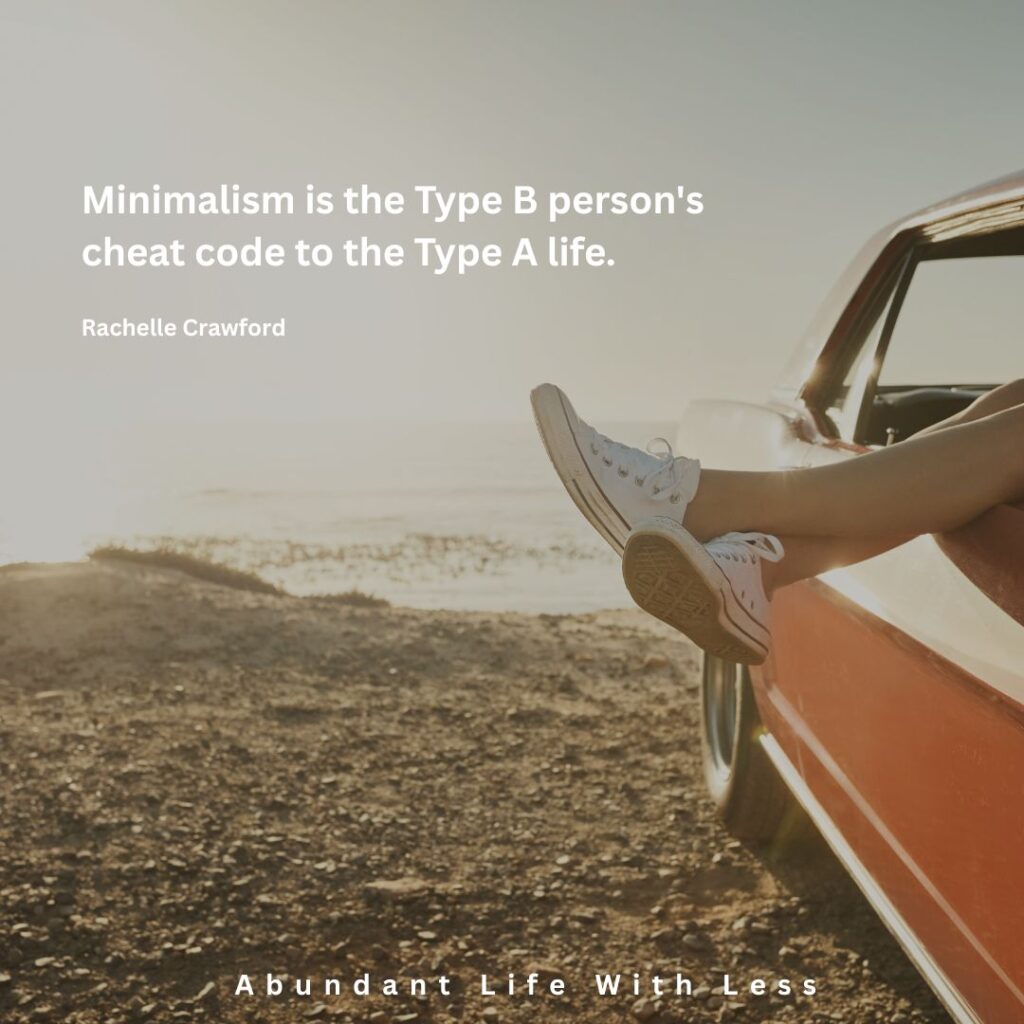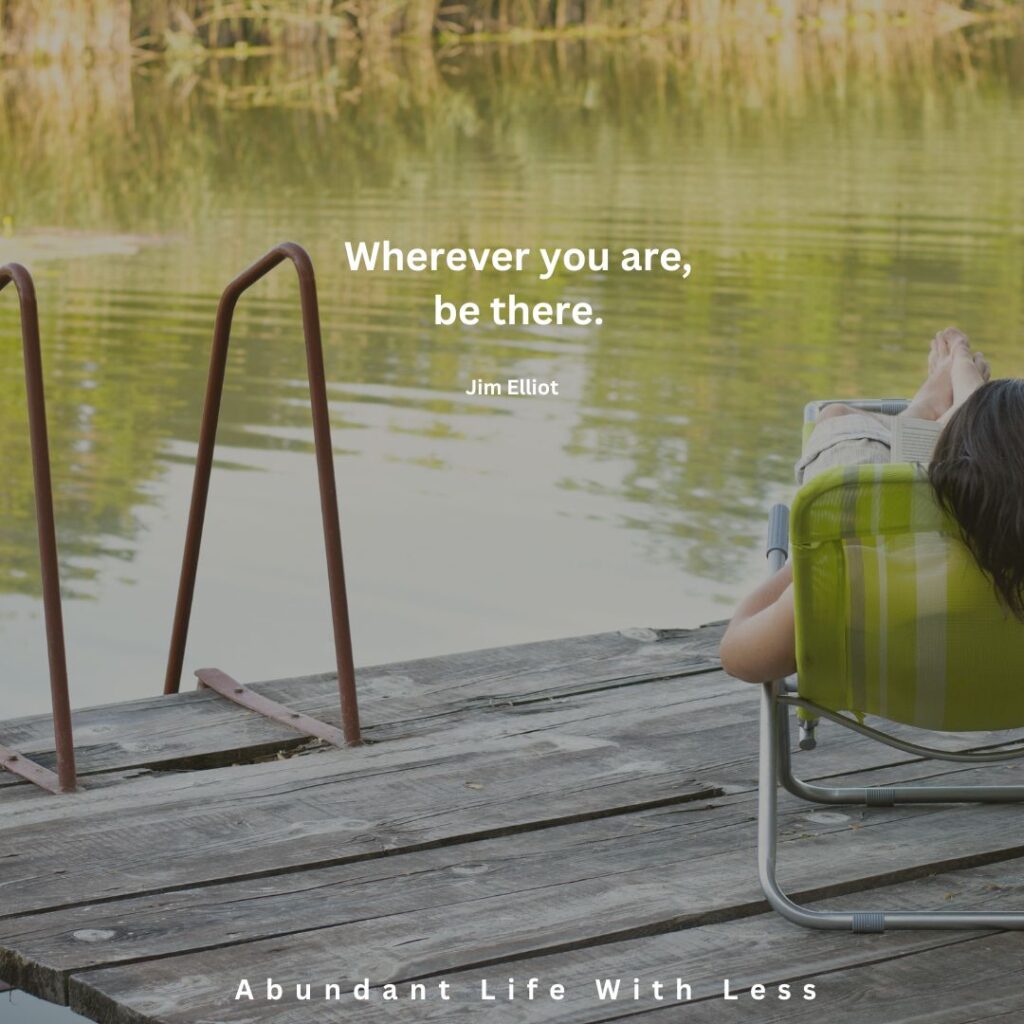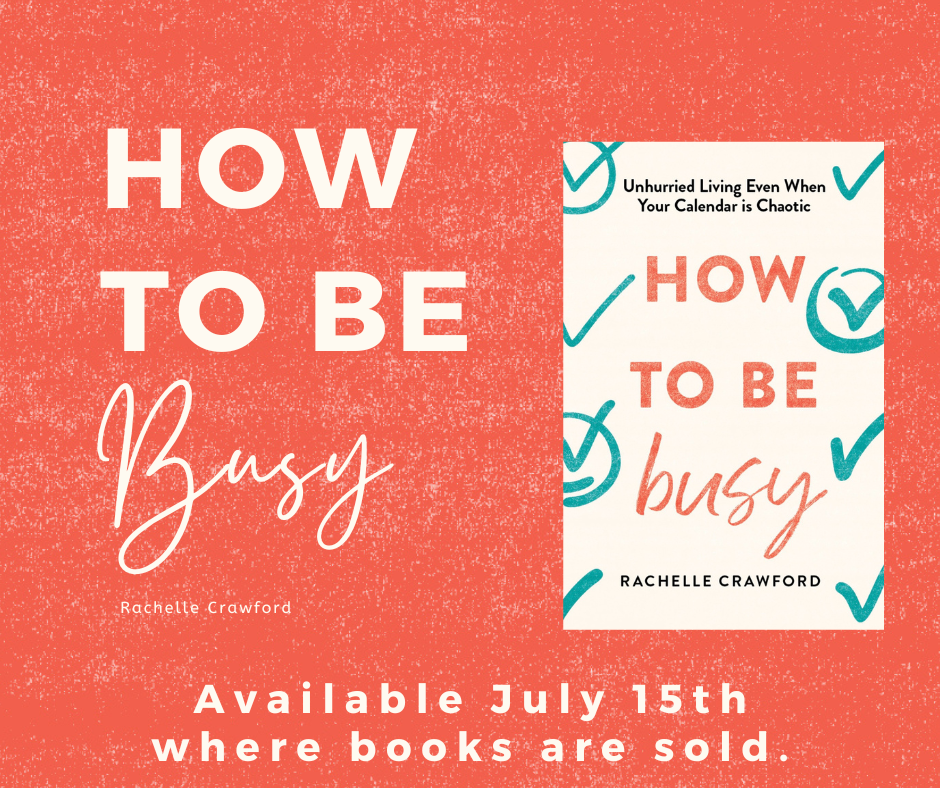Inside: Minimalism isn’t just a lifestyle meant for the super organized. It’s a life hack for those of us who tend to be a little more… Type B. Here you’ll find 3 Reasons Minimalism is Especially for Type B People.*

Some people thrive with routines. They establish a laundry system, meal plan or workout regimen and then actually stick with it. Me? I’ve got about 3-4 days worth of routine in me before it starts to fall apart.
Sometimes extenuating circumstances arise, running my well coordinated routines off the road. Other times it’s just me. I get overwhelmed at the thought of maintaining my own productivity, or grow bored by the monotony of it all, and forcefully toss my ambitious plan to the wind in the name of spontaneity. As a friend once put it, “It worked so well, I stopped doing it.”
Minimalism may not be for everyone, but for type B people it can help shoulder the burden of our more inconsistent approach to being a person. Through the power of less, minimalism can create more room in your life for the things that light you up.
3 Reasons Minimalism is Especially for Type B People
1. Simpler Systems That Actually Stick
While type B People tend to be more tolerant of mess, the mess is still incredibly draining. We just don’t seem to notice it as much… until we do. We put off monotonous tasks like tidying up, making appointments, organizing and planning ahead until they become glaringly problematic
We don’t always notice how much the messes, clutter and disorder bother us. However, clutter has been shown to have a negative impact on cortisol levels. Especially for women.
Type B people prefer flexibility and are therefore, ironically opposed to the very thing we need: elaborate routines and positive habits.
Minimalism offers the best of both worlds because the routines needed to maintain a clutter-free home are far simpler than the routines required to maintain a cluttered one. We’re more likely to stick with routines that take as little time and mental effort as humanly possible.

Tidying your home is easier with minimalism. Cooking dinner for your family is easier with minimalism. Getting ready and out the door in the morning is easier with minimalism.
Minimalism is the Type B person’s cheat code to the Type A life.
2. Freedom from the Comparison Trap
Your life goals aren’t like everybody else’s. While type A people tend to prioritize efficiency, productivity and urgency, type B people look more to experiences, relationships and contentment.
We’re the laissez-faire to their carpe diem.
Not that type A people don’t care about those things at all. (Please don’t come for me with your well organized bullet points arguing my point.) The difference is: type A people often need to put the chaos in order before they can “savor the moment.” Type B people can look past the chaos. It’s a blessing and a curse.
The thing is, it’s all fun and games until it’s time to play catch up. It’s very possible to laissez-faire so hard that you create a to-do list so long that it would make even a type A person’s face twitch. We’re left feeling like our only course of action is to try and adopt a type A approach to managing our life. After all, type A people make it look so effortless.
We live in a highly comparative society. No other time in history have humans been so inundated with information regarding the accomplishments of everyone we’ve ever known. Social media has connected us like never before, but there is such a thing as too much of a good thing.
With a minimalist approach to material possessions, commitments and goal setting, we can create a life that fits while pushing comparison to the wayside. It allows us to confidently make our homes our own. To orchestrate simpler schedules that actually align with our goals. And maintain more manageable to-do lists.
Minimalism can help you curate a life that aligns with your strengths, supports your weaknesses and empowers you to be who it is you were created to be.
3. More Mental Energy for What Matters
With less mental energy devoted to consumerism induced obligations and hustle culture informed schedules, you’ll be in a better position to be present for the things that truly matter to us.
Type B people are more prone to procrastination and decision fatigue. And every added material possession and commitment comes with more decisions to be made and tasks to put off. For us, it feels like Olympic level mental gymnastics. Adopting a minimalist mindset not only clears the clutter from our closets, but it eliminates the number of trivial decisions one must make.
Here are just a handful of ways minimalism has helped reduce my mental load:
- I have fewer clothing decisions to make in the morning.
- I can find what I need without digging through clutter.
- I’ve developed the habit of protecting my calendar from overload.
- I’m less stressed about my “outdated” home decor.
- When life gets busy, I don’t unravel—Instead, I approach busyness strategically with a minimalist mindset.
An overly cluttered mental load isn’t as obvious on the outside as a messy kitchen or overflowing coat closet, but its impact is far greater. I’ve found a minimalist mindset to be the most effective way to not just create more time for the things that matter, and ensure you’re mentally present for them as well.

Opting Out
Our success isn’t found in becoming a Type A person, but rather in building a life that runs on fewer, simpler routines.
The hustle culture tells us we can have it all, but type B people know that isn’t the case. We have to choose. Or better yet, we get to choose. While nonchalance is a type A person’s nightmare, for us it’s a super power.
You don’t have to fill your home with things you don’t need. You don’t need to overbook your calendar and run yourself ragged just because everyone else does. You don’t need to waste your mental energy keeping up with trends.
The best part is that you don’t even want all that. It’s just that you’ve been raised on a diet of hyper productivity. While it doesn’t feel like it fits, it’s all you know.
It’s time to lean into your natural instinct to opt out by opting into minimalism. If consistent routines, keeping up with the Joneses and multitasking aren’t your thing, minimalism just may be.
How To Be Busy: Unhurried Living Even When Your Calendar is Chaotic
How to Be Busy is a type B approach to time management.
It’s a lighthearted, story-driven, and practical guide for finding calm in seasons when being busy isn’t optional.
As a vocal advocate of simplicity and slowing down, I was surprised by how busy I started to find myself. Despite my efforts to keep our calendar clear, it started to fill up. Regardless of how intentional I was with my time, I kept finding myself overwhelmed.
That’s when I realized: I wasn’t doing it wrong- I had just moved into a busier season of life. This book is for people who don’t want to be busy, but don’t always get a say in the matter.
Busy isn’t the enemy. A full calendar isn’t a failure. Sometimes it’s just life—with people to care for, goals to chase, and chaos that shows up uninvited.
We don’t have to choose between unbusy and too busy. Instead we can learn to be busy well.
Available July 15 where books are sold or listened to. Preorder today on Amazon or your favorite bookstore.
*This post contains an Amazon Affiliate Link.





